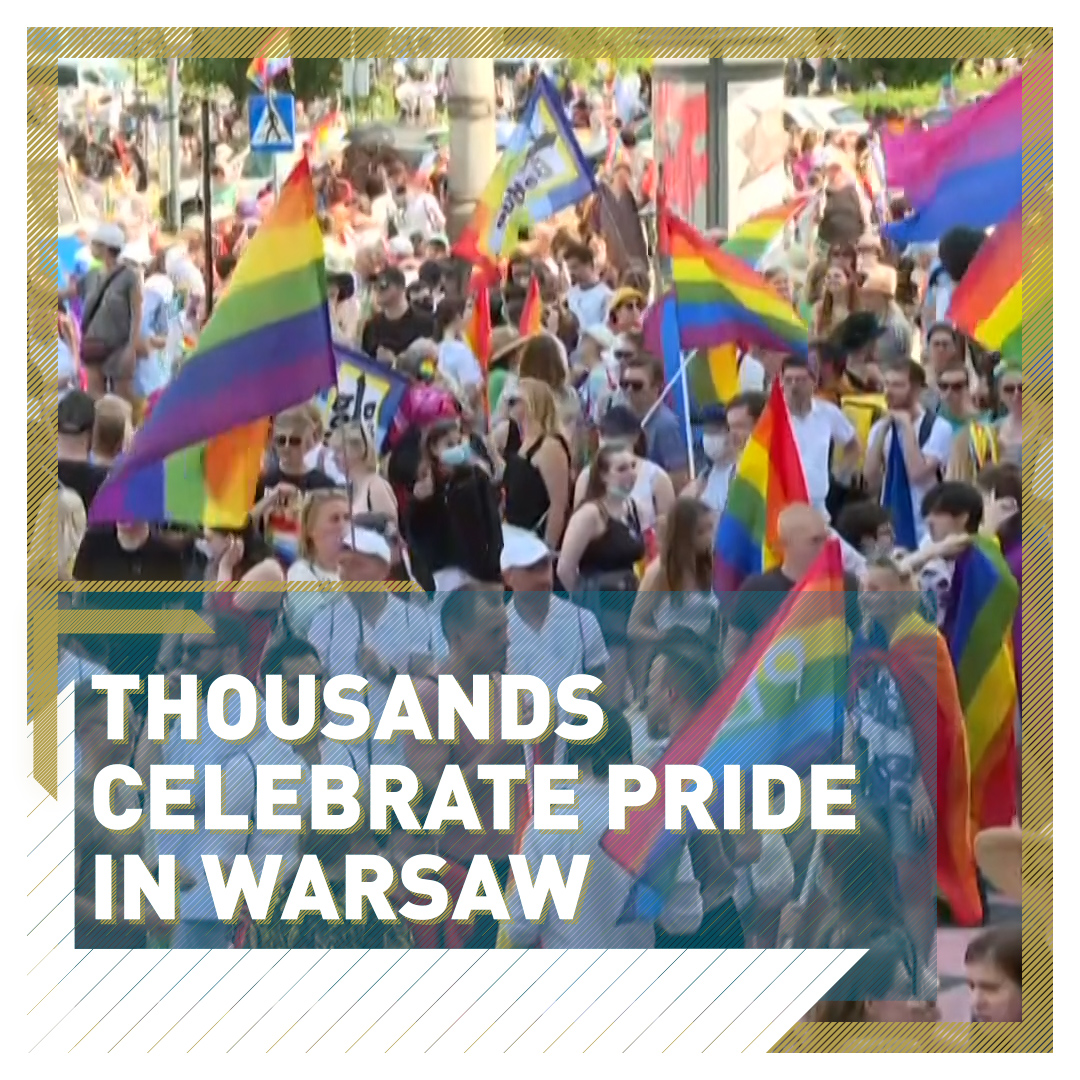00:53

The largest gay pride parade in central Europe took place in Warsaw on Saturday for the first time in two years after a pandemic-induced break — and amid a backlash in Poland and Hungary against LGBT rights.
Warsaw mayor Rafal Trzaskowski walked at the head of the Equality Parade on Saturday — a sign of support for LGBT rights by the liberal politician. Thousands of people joined the march and were cheered on by others waving rainbow flags from their apartment balconies.
But that level of acceptance is not universal in Poland, a heavily Catholic, largely conservative nation. The joyful and colorful celebration was tinged with fear of what the future holds for the rights of gay men, lesbians, bisexuals and transgender people after equality setbacks in Russia and Hungary.
"The day of the parade is always a bitter-sweet moment for our community," said Rafal Wojtczak, a spokesman for the organizers. He described feelings of sadness and helplessness that LGBT people have not achieved rights like same-sex partnership or marriage in Poland, while also facing new threats.
READ MORE:
Space, the Titanic and dragon boats: China Quick Take
Is there life on Mars?
A greener concrete
In a sea of rainbow flags, the symbol of the LGBT community, marchers gathered outside the towering neo-Gothic Palace of Culture in central Warsaw, as a DJ played dance music from a stage before the start of the march.
"The Equality Parade is a celebration of LGBT people and all those who have to fight for their rights," said 22-year-old restaurant worker Sylwester Cimochowski.
"Homophobia is a huge problem in Poland... there are lots of people who can't cope with it, they kill themselves. The situation of LGBT people in Poland is tragic and that's why I'm here – to support them."

Participants march during the gay-pride Equality Parade in central Warsaw. /Wojtek Radwanski/AFP
Participants march during the gay-pride Equality Parade in central Warsaw. /Wojtek Radwanski/AFP
Legal restrictions
The parade comes days after Hungary's parliament passed a law that makes it illegal to show any materials about LGBT issues to people under 18. Hungary's conservative ruling party portrayed the law as an effort to fight pedophilia. But human rights groups see it as a cynical tool that will discriminate against LGBT people, and prevent young people from accessing critical information.
Poland's populist ruling party has taken a political direction very similar to that pursued by Hungary's prime minister Viktor Orban in past years.
The European Union has denounced both these two member nations, accusing them of eroding democratic norms.
"It's getting more and more difficult... but at the same time there is more and more resistance," said Marta Borkowska, a 37-year-old business consultant, referring to the situation of LGBT people in central and eastern Europe.
One prominent Polish activist, Bart Staszewski, carried a Hungarian flag in Saturday's march. He said it was a message to the EU to act in defense of LGBT people because he fears that "Poland will be next."

Participants march under a large rainbow-coloured flag during the Warsaw Gay Pride parade. /Wojtek Radwanski/AFP
Participants march under a large rainbow-coloured flag during the Warsaw Gay Pride parade. /Wojtek Radwanski/AFP
A year ago, the Polish LGBT community faced a backlash from ruling conservative politicians, local communities and the church. In his successful bid for reelection against a challenge from Trzaskowski, President Andrzej Duda declared that "LGBT is not people; it's an ideology" while also claiming that it was "even more destructive" than communism.
"We've been through a very, very rough time, but at the same time we are going out in the streets and we are saying we are stronger and we are not going to give up," said Miroslawa Makuchowska, vice director of Campaign Against Homophobia.
This weekend's Equality Parade comes 20 years since the event was first held in the Polish capital. It was banned twice in its early years by a conservative mayor, Lech Kaczynski, who feared it would promote homosexuality, and last year it was canceled due to the coronavirus pandemic.
Source(s): AP
,AFP
,Reuters

